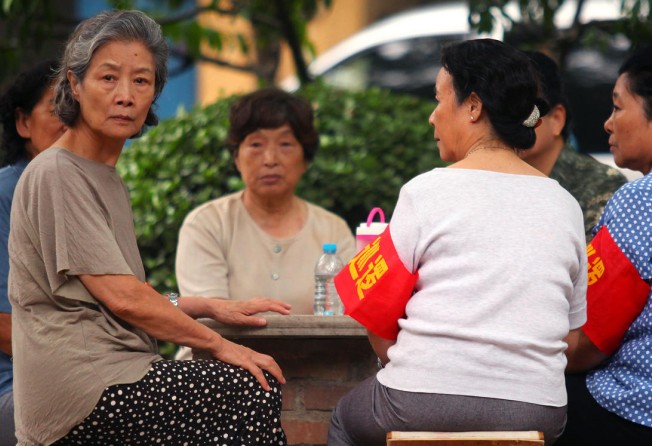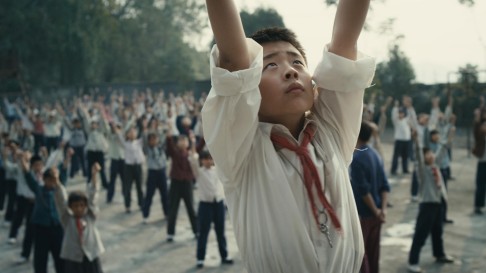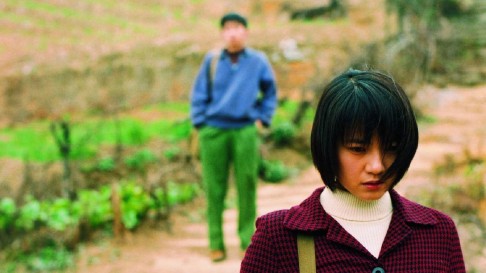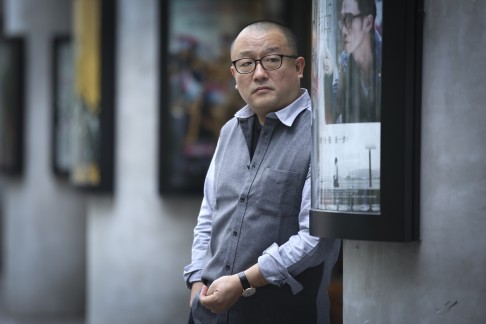Wang Xiaoshuai's Cultural Revolution trilogy screens in Hong Kong
The Chinese director's third film about a turbulent decade in the nation's history - part family drama and part mystery thriller - digs deep into suppressed memories and buried traumas

When Wang Xiaoshuai tackled one of the most contentious periods in his country's contemporary history in the film Shanghai Dreams - which went on to win him the jury prize at 2005's Cannes Film Festival - he was merely trying to ignore the market and follow his heart.
Now, less than 10 years later, the Chinese filmmaker has completed a trilogy of films centred on the Cultural Revolution, the others being 11 Flowers (2011) and Red Amnesia (2014).
"Looking back, I feel like I've accomplished an impossible feat. I put in a lot of effort to make it happen - it's not easy," says Wang, 49.
Since he burst onto the scene with Beijing Bicycle, which won the Silver Bear award at 2001's Berlin International Film Festival, the 1989 graduate from the Beijing Film Academy has repeatedly made films about the things - from morals to memories - that his compatriots have lost amid China's social and economic development in the past couple of decades.
"From the time I began working on Shanghai Dreams in 2003, this [trilogy] project has been an odd fit for China's market-driven society," he says. "It's what people would describe as 'outdated'. But I somehow felt that I didn't necessarily need to follow the trends. These films have to be made, and somebody has to make them. I'm very satisfied just by the fact that I did it."
Chinese films addressing the Cultural Revolution, though available, have been few and far between. While there are scattered examples - Chen Kaige's Farewell My Concubine and Tian Zhuangzhuang's The Blue Kite (both 1993) being two of the most notable - the only thing they appear to have in common is the pressure faced by their makers.

"Once these films were released, they caused wave upon wave of public debate," Wang says. "I feel that this is a very interesting phenomenon in China: there are people who don't like you to revisit the topic.
"When he puts it upfront and asks his audience to face and reflect on the issue, the filmmaker may turn out to be the one who's doubted by the public. People may say, 'Why are you still dwelling on this? You should move on with the times and make films about contemporary issues.' These dissenting voices have always been co-existing with this subject matter."
Politics aside, Wang is satisfied by the fact that the story of Red Amnesia, the last in his trilogy, doesn't go back in time in its attempt to investigate history. By comparison, Shanghai Dreams tells a 1960s-set story about city workers' displacement to poorer regions inland, while 11 Flowers is a 1975-set story about an 11-year-old boy who lives obliviously through the period.
"Red Amnesia is set around everyday life in the present - and yet the audiences can still feel the presence of the past. The traces of Chinese history are not forgotten; instead, they're all there [on the screen]. In my opinion, this is not easy to pull off."
At the beginning of the film, 70-something widow Deng Meijuan (played by veteran stage actress Lu Zhong) leads a largely tranquil life; her daily concerns range from the impatience of her elder son's wife and the homosexuality of her younger son to the condition of her own elderly mother in a nursing home.
But when Deng begins receiving phone calls from a silent caller and is stalked around town by a teenage boy (Shi Liu), the old lady is forced to confront both her confused present and what turns out to be a guilt-ridden past.

Red Amnesia serves up an unlikely blend that mixes family drama and mystery thriller in the mould of Michael Haneke's 2005 Hidden - which Wang admits to have watched once, though he says: "[I] still haven't figured out the relations among its characters."
While his film holds up a mirror to an often-overlooked part of China's contemporary history, Wang finds the origin of his film much closer to home: both of his parents worked at the Third Front.
"When I looked at my mother and other older relatives, I saw that they're living in a completely different China from what they're used to," he says. "It's hard for them to adapt to the rapid developments around them. I found their generation very interesting. You see traces of two different eras in them; their personalities have a very intricate connection to the great changes that China has gone through," he says.
As audiences ponder whether the disturbances experienced by the protagonist are real or imagined, Wang hints at the dramatic influences these traumatic memories have had on those who lived through the Cultural Revolution.

Asked about his film's disjointed narrative and the generally vague definitions of his protagonist's perception, Wang explains that it "can all be explained through this old lady character. Even she is not sure whether things have really happened. It's what an old person may experience; I'm attempting to blur the boundary between reality and fantasy."
Wang confirms the symbolic value of Shi's young character, who appears to exist as a violent intrusion into the stability and prosperity of present-day China.
"While he's a person in the story, the young boy also signifies a distant past that is haunting the lady's present," says the director.
The multiple possibilities for interpreting the cryptic narrative of Red Amnesia are also reflected in the difference in its Chinese and English titles. While its English version - with input from the film's French producer - evokes the collective amnesia that the Chinese public has developed concerning the more extreme chapters in the country's history, the original Chinese title, meaning "intruder", is less overt.
Amid the social changes in China, the older layers of memory are inevitably covered by newer ones. It's very easy to forget things
"We see that the older and younger generations have opened up a gulf of misunderstanding between them, so much so that they're intruding into the lives of each other now," Wang explains.
"Through their upbringing and educational background, the minds of these older people might have been intruded [upon] a long time ago. Their individual consciousness has been slowly fading away."
Wang sees this case of mass amnesia as a continuing process that will eventually engulf the young.
"Amid the social changes in China, the older layers of memory are inevitably covered by newer ones. It's very easy to forget things. As layers and layers of new memories are pressed down, the younger generations may begin to forget [the past] because of a lack of information.
"In the case of the old lady character, her life appears to be quite far removed from her past. But once something from that [past] rattles her present, all [the memories] resurface. The memories never really disappear; people just pretend to be forgetful."
Shanghai Dreams,11 Flowers and Red Amnesia are on limited release at Broadway Cinematheque, Yau Ma Tei, respectively from July 27, 29 and 30